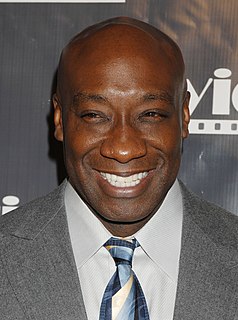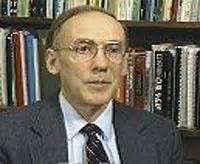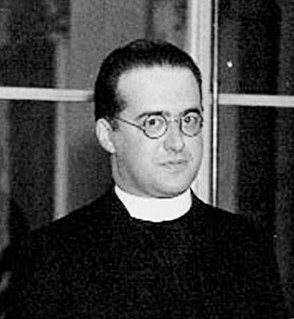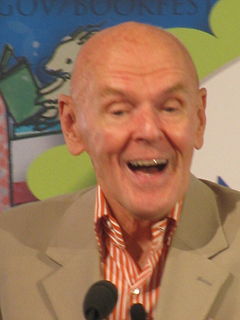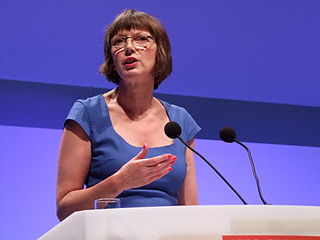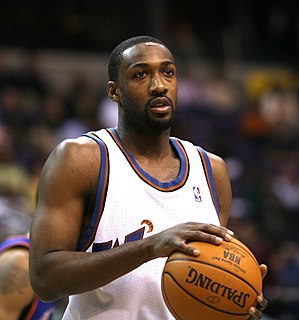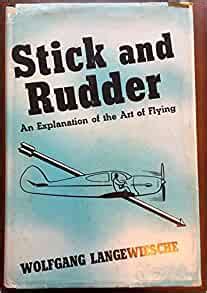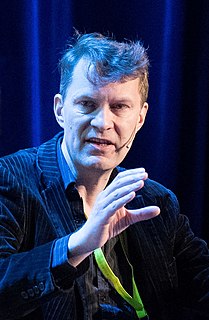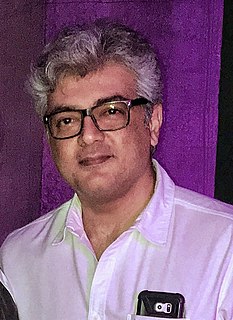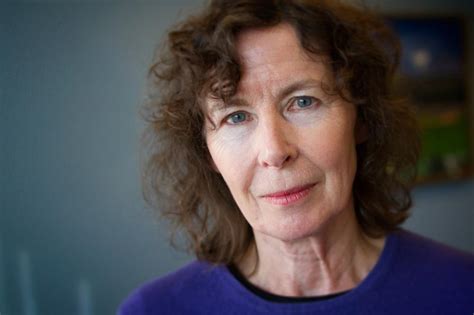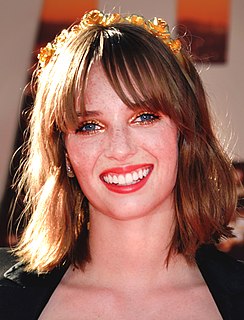Top 173 Textbook Quotes & Sayings - Page 3
Explore popular Textbook quotes.
Last updated on April 19, 2025.
China has been a textbook case of how the government did just enough intervention to increase penetration, but the reality is that it isn't going to work for all countries in the same way. Culture always plays a role and you can't necessarily take what worked in one market and automatically make it work somewhere else.
I found marketing to be highly descriptive and prescriptive, without much of a foundation in deep research. I brought in economics, organization theory, mathematics, and social psychology in my first edition of Marketing Management in 1967. Today Marketing Management is in its 15th edition and remains the world's leading textbook on marketing in MBA programs. Subsequently, I wrote two more textbooks, Principles of Marketing and Marketing: an Introduction.
When I went to high school - that's about as far as I got - reading my U.S. history textbook, well, I got the history of the ruling class. I got the history of the generals and the industrialists and the presidents that didn't get caught. How 'bout you? I got all of the history of the people who owned the wealth of the country, but none of the history of the people that created it.
When we seek a textbook case for the proper operation of science, the correction of certain error offers far more promise than the establishment of probable truth. Confirmed hunches, of course, are more upbeat than discredited hypotheses. Since the worst traditions of "popular" writing falsely equate instruction with sweetness and light, our promotional literature abounds with insipid tales in the heroic mode, although tough stories of disappointment and loss give deeper insight into a methodology that the celebrated philosopher Karl Popper once labeled as "conjecture and refutation.
I founded an educational software company called Knowledge Revolution. We had the first fully animated physics lab on the computer. You could take ropes, pulleys, balls and anything else you'd use in your physics textbook and the program would allow you to build anything you can think of in a physics lab.
I am a follower of Jesus Christ. The Bible is my primary way of knowing Him and what it means to follow Him. And I am a pastor, and I teach and preach the Bible to my congregation every week. But the Bible is not a manufacturer's handbook. Neither is it a science textbook nor a guidebook for public policy.
Jonathan Wells has done us all - the scientific community, educators, and the wider public - a great service. In Icons of Evolution he has brilliantly exposed the exaggerated claims and deceptions that have persisted in standard textbook discussions of biological origins for many decades, in spite of contrary evidence. these claims have been so often repeated that they seem unassailable - that is, until one reads Wells's book.
Should a priest reject relativity because it contains no authoritative exposition on the doctrine of the Trinity? Once you realize that the Bible does not purport to be a textbook of science, the old controversy between religion and science vanishes . . . The doctrine of the Trinity is much more abstruse than anything in relativity or quantum mechanics; but, being necessary for salvation, the doctrine is stated in the Bible. If the theory of relativity had also been necessary for salvation, it would have been revealed to Saint Paul or to Moses.
September 11 We thought we'd outdistanced history Told our children it was nowhere near; Even when history struck Columbine, It didn't happen here. We took down the maps in the classroom, And when they were safely furled, We told the young what they wanted to hear, That they were immune from a menacing world. But history isn't a folded-up map, Or an unread textbook tome; Now we know history's a fireman's child Waiting at home alone.
The very power of [textbook writers] depends on the fact that they are dealing with a boy: a boy who thinks he is ‘doing’ his ‘English prep’ and has no notion that ethics, theology, and politics are all at stake. It is not a theory they put into his mind, but an assumption, which ten years hence, its origin forgotten and its presence unconscious, will condition him to take one side in a controversy which he has never recognized as a controversy at all.
The best way to encourage economic vitality and growth is to let people keep their own money.When you spend your own money, somebody's got to manufacture that which you're spending it on. You see, more money in the private sector circulating makes it more likely that our economy will grow. And, incredibly enough, some want to take away part of those tax cuts. They've been reading the wrong textbook. You don't raise somebody's taxes in the middle of a recession. You trust people with their own money. And, by the way, that money isn't the government's money; it's the people's money.
I loved statistics from a young age. And I studied very much in Sweden. I used to be in the upper quarter of all courses I attended. But in St. John's, I was in the lower quarter. And the fact was that Indian students studied harder than we did in Sweden. They read the textbook twice, or three times or four times.
I think I give far more space and play to avant-garde writing than any other contemporary textbook author. I want students to be able to decide for themselves which aesthetics are closest to their own. Still, while I try not to be a nostalgist myself, I suppose I am drawn to those poignant moments in our lives, rendered clearly and artfully.
Building on exhaustive research and probing into such diverse enterprises as textbook production and marketing, public education, and state-level politics, Adam R. Shapiro has situated the Scopes trial within a much broader context than any scholar before him. Trying Biology also demonstrates how ideologues have used differing interpretations of the Scopes trial to advance their agendas. By situating the trial within this much broader framework, the author has significantly enlarged our understanding of the conversations between religion and science in twentieth-century America.
They gave high fives to all the players who say like the most obvious textbook answers in the world. It's like after each game, you already know what they're going to say. If they lost: "Ahh ... Tough loss." It's like, come on, how do you guys fall for that? And if they something that they really feel, everyone goes crazy. Like "Oohh! He's spazzing out!" Now he gotta say sorry for saying something he really felt. It's like, Oh lord.
The way the textbook works is you have gains from trade that should be distributed across all the trading partners. As soon as one bad actor like China massively cheats, they win at the expense of us; they win at the expense of Europe, and over time, it threatens the entire integrity of the global financial system and the global trading system.
I believe in the separation of powers. If a judge crosses the line between interpreting and making the law, he has crossed the line supporting his legitimate authority from the legislative branch's authority. Now, to me that's a very serious matter if we believe, as America's founders, did that the separation of powers - not just in theory or in textbook but in practice in the actual functioning of government - is the linchpin of limited government and liberty.
Nature's law says that the strong must prevent the weak from living, but only in a newspaper article or textbook can this be packaged into a comprehensible thought. In the soup of everyday life, in the mixture of minutia from which human relations are woven, it is not a law. It is a logical incongruity when both strong and weak fall victim to their mutual relations, unconsciously subservient to some unknown guiding power that stands outside of life, irrelevant to man.
Any young boy can nowadays explain human flight - mechanistically: " ... and to climb you shove the throttle all the way forward and pull back just a little on the stick. ... " One might as well explain music by saying that the further over to the right you hit the piano the higher it will sound. The makings of a flight are not in the levers, wheels, and pedals but in the nervous system of the pilot: physical sensations, bits of textbook, deep-rooted instincts, burnt-child memories of trouble aloft, hangar talk.
I have become an adjective. There is something called a Rovian-style of campaigning and it's meant as an insult. One columnist said it consists mainly of throwing mud until it sticks. One prominent blogger described the elements of a textbook Rovian race as fear-based, smear-based and anything goes.
I was telling somebody about in grammar school we used to have the duck-and-cover drills where we'd have to go down to a fallout shelter in the basement. We'd sit on our butts on the ground next to the wall with a textbook over our heads and our knees sort of drawn up to our chest. I don't think they still do that. They're sort of sobering. You leave recess and come in for the apocalypse drill.
Idiot. Above her head was the only stable point in the cosmos, the only refuge from the damnation of the panta rei, and she guessed it was the Pendulum's business. A moment later the couple went off -- he, trained on some textbook that had blunted his capacity for wonder, she, inert and insensitive to the thrill of the infinite, both oblivious of the awesomeness of their encounter -- their first and last encounter -- with the One, the Ein-Sof, the Ineffable. How could you fail to kneel down before this altar of certitude?
Taking ideas seriously does not fit with the rhetorical style of textbooks, which presents events so as to make them seem foreordained along a line of constant progress. Including ideas would make history contingent: things could go either way, and have on occasion. The 'right' people, armed with the 'right' ideas, have not always won. When they didn't, the authors would be in the embarrassing position of having to disapprove of an outcome in the past. Including ideas would introduce uncertainty. This is not textbook style.
I was raised in a dominantly Filipino family. I didn't know I was 'mixed' until I got older and started asking questions about my grandparents, the origins of our middle and last names. We were kind of textbook Pinoys. A lot of the Filipino stereotypes that were joked about by me and my friends rang very true with my family.
If you're angry, you don't have to write a poem dealing with the cause of your anger. But it needs to be an angry poem. So go ahead... write one. I know you're at least a little bit angry with me. And when you're done with your poem, decipher it as if you'd just found it printed in a textbook and know absolutely nothing about its author. The results can be amazing...and scary. But it's always cheaper than a therapist.
When I taught writing classes to psychiatric patients, I met people whose stories of manic highs and immobilizing lows appeared to be textbook descriptions of classic bipolar disorder. I met other patients who had been diagnosed with myriad disorders. No doctor seemed to agree about what they actually suffered from.
The other day I found her passport in her drawer when I was putting away my dad's laundered handkerchiefs. I wish I hadn't. For the purpose of my story, she should have it with her. I sat on my dad's bed and flipped through page after empty page. No stamps. No exotic locales. No travel-worn smudges or creases. Just the ID information and my mother's black-and-white photo which if it were used in a psychology textbook on the meaning of facial expressions would be labelled: Obscenely, heartbreakingly hopeful.
There is a lot of money to be made from miseducation, from the easy to read easy to learn textbooks, workbooks, teacher manuals, educational games and visual aids. The textbook business is more than a billion-dollar-a-year industry and some of its biggest profits come from 'audio-visual aids' - flash cards, tape cassettes, and filmstrips. No wonder the education industry encourages schools to focus on surface education.
Consonance, says the dictionary, is the combination of several tones into a harmonic unit. Dissonance results from the deranging of this harmony by the addition of tones foreign to it. One must admit that all this is not clear. Ever since it appeared in our vocabulary, the word 'dissonance' has carried with it a certain odor of sinfulness. Let us light our lantern: in textbook language, dissonance is an element of transition, a complex or interval of tones that is not complete in itself and that must be resolved to the ear's satisfaction into a perfect consonance.
I would say that, in the future, the book will be reserved for things that function best as a book. So, if I need a textbook that's going to be out of date because of new technological inventions, you're better off having it where you can download the supplements or the update. If you're going to read a quick mystery novel to keep you amused while you're traveling, it's fine.
If we choose a weak and foolish speculation as a primary textbook illustration (falsely assuming that the tale possesses a weight of history and a sanction of evidence), then we are in for trouble - as critics properly nail the particular weakness, and then assume that the whole theory must be in danger if supporters choose such a fatuous case as a primary illustration.
My four years in Russia end, then, in dramatic fashion: with a textbook Soviet-style expulsion. I am the first western staff correspondent to suffer this fate since the end of the Cold War. I'm stunned. But my expulsion is not, I reflect, a surprise. It's something I have always accepted as a real, if far-fetched, possibility.
For most problems found in mathematics textbooks, mathematical reasoning is quite useful. But how often do people find textbook problems in real life? At work or in daily life, factors other than strict reasoning are often more important. Sometimes intuition and instinct provide better guides; sometimes computer simulations are more convenient or more reliable; sometimes rules of thumb or back-of-the-envelope estimates are all that is needed.
I would not say I was not interested in studies - it just wasn't there in me to pursue academics. I would open a page in the textbook and start thinking about everything under the sun except what was there in the book. I was more into extra-curricular activities and sports like NCC, rifle shooting, aero-modelling, bike racing, etc.
I'm skeptical that the novel will be "reinvented." If you start thinking about a medical textbook or something, then, yes, I think that's ripe for reinvention. You can imagine animations of a beating heart. But I think the novel will thrive in its current form. That doesn't mean that there won't be new narrative inventions as well. But I don't think they'll displace the novel.
In the wake of her indispensable textbook, Janet Burroway now offers a splendid and concise guide to the thorny task of revision. Writers, young and old, will feel encouraged and enlightened by this excellent DVD which offers a wonderful range of specific advice and suggestive comments from a group of experienced and thoughtful writers.
Read a textbook. It will tell you. These are the things for instance on the African continent that will contribute to immune deficiency, various tropical diseases because of poor infrastructure, general levels of poverty don’t get treated. Syphilis untreated or not properly treated, which as it happens is a big problem as I hear, gets treated, the symptoms disappear but in fact… it … that impacts on the immune system. You’ve got to deal with these things.
I got to take classes in writing with a fountain pen, and actually, something you make is your own textbook. So, while you're learning about something, you have to write essays on it, and then you handwrite in cursive, in fountain pen, your essays out on beautiful paper and you bind it together into a book that you hand in at the end of the course.
